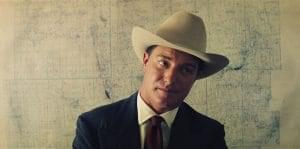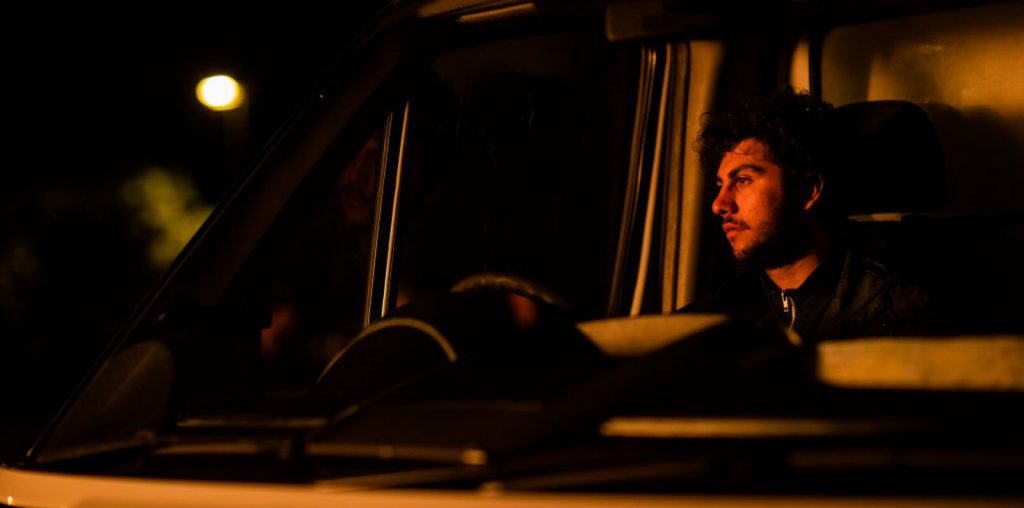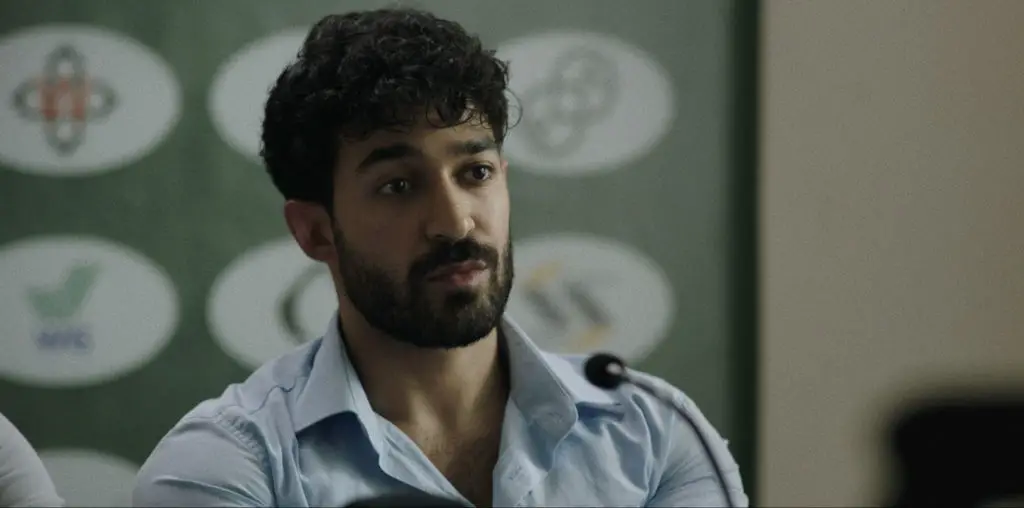
“They don’t make ’em like they used to” is, for better and for worse, an adage that can be readily applied to American movies these days.
However, this isn’t to say that a little bit of that signature Old Hollywood sweep and grandeur can’t still be found on screen from time to time – it’s just that, apparently, you’re more likely to see it in an independent production fueled by a Texas-sized ambition than you would be from a major-studio release.
Case in point: the oil-tycoon drama The Iron Orchard, a slice of classical, determinedly old-fashioned cinematic storytelling – a period piece, no less – that upholds a fine tradition of big-scale American epics without breaking the bank. It may not be a flawless film, but its handsome location photography, decades-spanning story, and the pure gumption and heart that director Ty Roberts showcases throughout make it an effort well worth getting behind – even when the character its expansive narrative revolves around isn’t.
Adapted from a 1966 novel by Tom Pendleton, The Iron Orchard is the rags-to-riches-to-ruin story of a scrappy kid who finds both fortune and tragedy in the booming oil fields of West Texas around the middle of the 20th century. When we first meet protagonist Jim McNeely (Lane Garrison), he’s a wide-eyed working-class guy in love with Mazie (Hassie Harrison), a high-society city girl who’s way out of his league, financially speaking. Lacking the funds or the social status to woo her properly, he’s urged by Mazie’s class-conscious mother (Shelley Calene-Black) to seek out a career in the oil business, with the dim prospect that he’ll somehow strike it rich and, thus, be “good enough” to marry into the family.

“…he’s a wide-eyed working-class guy in love with…a high-society city girl who’s way out of his league, financially speaking.”
Unfortunately for the poorly-connected Jim, that means starting from the bottom as part of a pipe-laying outfit, enduring a grueling, prison-like treatment from his fellow crew members and a real hardass of a boss (Gregory Kelly). Jim somehow manages to find his inner toughness and resolve within those soul-crushing conditions, although his dreams of returning home to sweep Mazie off her feet soon begin to fade. But, out on the oil fields, there are new ones to replace them: the notions of setting out on his own to drill the land that hasn’t already been snapped up by the big companies, as well as romancing Lee (Ali Cobrin), the beautiful, unhappy wife of a company engineer. Smart, tough, and charming as a young man – and with the support of his affably pragmatic confidante Dent Paxton (Austin Nichols) – Jim manages to build up the cash and the means to start up his own “wildcatting” operation, essentially taking educated but risky guesses drilling in fields that could either be flush with “black gold” or a complete bust.
Jim’s saga is one of both dizzying success and soul-crushing defeat, and, befitting its literary source material and classic Hollywood inspirations, The Iron Orchard has a hell of a lot of story to tell. Unfortunately, while the screenplay (by Gerry De Leon and the director) does have a fine ear for the technical slang and cowboy braggadocio of the oil business, the film isn’t always as graceful or satisfying as it could be in tackling its narrative beats. This being a sort of classic “rise and fall” narrative, some dramatic shortcuts can be forgiven, but a handful of plot points – such as Jim winning the respect of his hard-bitten pipe-laying crewmates – are treated as so obligatory, with so little setup or resolution, that they fail to register as anything but rote, rather weightless forward progress.
That’s not as big an issue in the film’s more successful second half, which is better at orchestrating fully realized, emotionally affecting dramatic sequences – the harrowing, well-staged climax is a particular highlight. But, ironically, even as its story begins to crystallize, The Iron Orchard somewhat loses sight of Jim himself, his motivations becoming increasingly murkier and less sympathetic. The film is never less than entertaining, and it’s easy enough to get caught up in its roller-coaster narrative and impressive recreation of mid-century Texas, but its makers occasionally struggle to get a handle on their protagonist and the attendant themes of ambition, failure, and stubborn perseverance that he represents.

“…a long way from being a disappointment…”
Still, The Iron Orchard is a long way from being a disappointment, and the film’s many successes outweigh its missteps. The milieu of old-field roughnecks and Lone Star State aristocracy that Pendleton’s novel provides is a fascinating one, and the filmmakers do a fine job of assembling and photographing the vintage cars, postwar-era fashions, and rickety, gargantuan oil-drilling machinery that makes all its world-building feel authentic. The casting is quite solid, as well, with Garrison (whom viewers might remember from a supporting role on Fox’s Prison Break) and Cobrin successfully channeling the needed Golden Age leading-man and -lady screen presence that a throwback film like this requires. The standout, however, is Nichols, who commands every scene he’s a part of in the film’s most complex and sympathetic role – his down-to-earth portrayal is able to create a moral and rational center for the story when it needs that grounding most.
It’s in finely wrought elements like Nichols’ supporting performance that The Iron Orchard proves itself more than just a fond evocation of a long-lost Cinemascope past, though it’s certainly that, too. It’s got to be gratifying that, a half-century after the highly regarded novel was published, a quality film was made out of Pendleton’s story in Texas by a Texas-based director and production company. Like the film’s central character, these folks had a dream so big that only those wide-open spaces could contain it, but unlike him, they mostly found the right way to see it through.

The Iron Orchard (2019) Directed by Ty Roberts. Written by Gerry De Leon and Ty Roberts. Starring Lane Garrison, Austin Nichols, Ali Cobrin, Hassie Harrison, Allan McLeod, Lew Temple, Ned Van Zandt, Donny Boaz, Temple Baker, Shelley Calene-Black
7.5 out of 10


